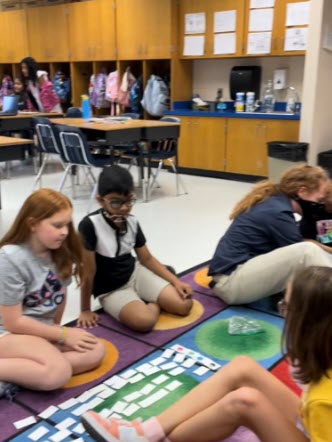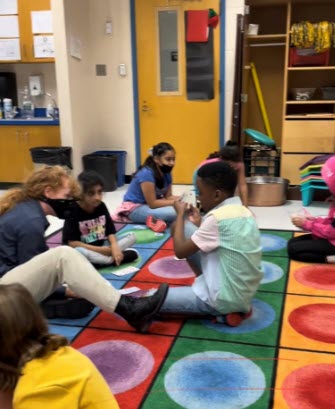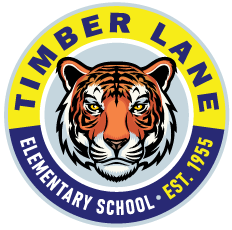September 2022 4th Grade Newsletter
Important Dates & Reminders
- Wednesday, October 5 - No school, Student Holiday
- Monday, October 10 - No school for students, Teacher Workday
- Tuesday, October 11 (6:00 - 7:30) - Family Science Night at Timber Lane
- Wednesday, October 12 - Field Trip to the National Symphony Orchestra
- Monday, October 24 - No school, Student Holiday
- Friday, October 28 - Early Release for students, end of Quarter 1
- Monday, October 31 - No school for students, Teacher Workday
- Students can bring 1 healthy snack to school each day that can be eaten in about 5 minutes.
- Teachers use Talking Points to message parents. Please check your Talking Points daily.
- Students need to read for 15-20 minutes each night at home and talk about what they read.
Language Arts
What we learned this month:
In September, the students focused on building our reading stamina and choosing just right books. Students are working on reading for 20 minutes uninterrupted. This is something students can work on at home. Set the timer on the microwave or phone and encourage your students to focus on their books the whole time!
What will be learning next month:
In October, we will be focusing on the characters in books. The students will be learning the difference between feelings and character traits. They will be reading about what characters say and do and what this tells us about the character. Ask your student about the characters they are reading about each day.
Math
What we learned this month:
In the first few weeks of school the students reviewed place value and studies place value through the millions. They discovered the difference between value and place value. Students also learned strategies for addition and subtraction through math story problems.
What we will be learning next month:
Up next, students will be focusing on fractions. Students will be drawing and naming fractions, and then order and compare fractions. Lastly, students will focus on fraction sharing problems and what happens when there isn’t an even amount. We highly suggest including your students in cooking and baking this next few weeks!
Advanced Math
What we learned this month:
In the beginning of the year, students focused on the characteristics of numbers. They learned to classify prime, composite, even, and odd numbers as well as determine the factors and multiples of a given number. Using these concepts, students are now diving into decimal and fraction number sense.
What we will be learning next month:
In the coming month, students will continue to explore fractions. They will learn to compare and order fractions and identify equivalencies among fractions and decimals. Our previous learning on factors and multiples will be particularly helpful this month!
Science
Our first science unit will be ecosystems where students will learn about plant and animal adaptations, habitats, and food webs!
Social Studies
- First, the students learned what it means to be a good digital citizen and how to act appropriately on the internet.
- Next, the students learned the geography of Virginia, the five regions of Virginia, and the important water features of Virginia.
- Recently, we focused on who the Native people of Virginia were and are and the languages that the Native Virginians spoke around the state.
AART
A Mindmap is a research- based strategy using colors, symbols, images, and words that all relate to a specific topic. The topic with the main image/symbol is represented in the middle of the students’ work, and then branches flow out of the structure based on the main ideas related to that topic. Students use a different color or line for each main idea, and add as many pictures, and 1 word per branch.
Topics for mindmaps can vary by age, and ideas. Many students find it easy to start with themselves as the main topic first, and then add branches based on hobbies, activities, school, family, etc. Older students can use this technique to review and practice for tests/assessments, or as an end of unit concept map. Often students enjoy making mindmaps on specific science, math or social studies content. Students can also create one on a book they’ve read, which can help them gain a deeper understanding of the concepts, perspectives, and relationships between ideas. Encouraging students to use symbols and images can really stretch their ability and thinking! Give it a try at home with the following idea:
Student Challenge:
Create a Mind Map of our community! Where do people play or get exercise? Where do you eat? Where do we shop? Where do we get help if we need it? Where do people come together to learn? Be sure to use pictures and colors to create your mind map.
Photo Gallery



